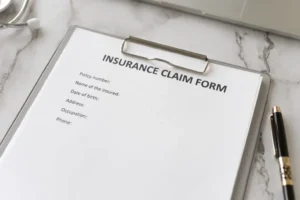Insurance can feel overwhelming, especially if you’re wading through an ocean of technical jargon. Understanding essential insurance terms, however, is critical for making informed decisions about your coverage and ensuring you’re adequately protected. This guide is designed to break down these crucial terms, helping you feel confident about your policy choices. Whether you’re a first-time policyholder or someone looking to refresh their knowledge, you’ll find everything you need right here.
Introduction to Insurance Terminology
Policyholders often struggle to understand insurance terminology due to its complex definitions and legalese. Terms like “premiums,” “deductibles,” or “policy limits” may appear straightforward at first glance but often carry nuances that could significantly impact your coverage and costs. Being familiar with this terminology equips you with the tools you need to better understand how policies work, what you’re paying for, and what to expect when you make a claim. This knowledge can save you money and spare you from surprises in situations when you need your insurance the most.
Understanding Premiums and Deductibles
At the core of any insurance policy are premiums and deductibles. A premium is the amount of money you pay your insurance provider regularly—usually monthly, quarterly, or annually—to maintain your coverage. Think of it as a subscription fee for ongoing protection. On the other hand, deductibles refer to the initial out-of-pocket expenses you bear before your insurance coverage takes effect. For example, if your insurance policy has a $500 deductible and you file a claim for $2,000, you will pay the first $500, and your insurer will cover the remaining $1,500.
Understanding the interplay between premiums and deductibles is key. Typically, a lower premium means a higher deductible and vice versa. Deciding on the right balance involves assessing your financial stability and how likely you are to use your insurance.
Policy Limits and Coverage Types
Policy limits define the maximum amount your insurer will pay for a covered loss. Depending on the policy, these limits may be categorized into specific areas, such as per-incident, per-person, or aggregate limits for the entire policy term. Choosing the right policy limits is essential. Insufficient coverage could leave you financially exposed, while overly high limits might inflate your premium unnecessarily.
Coverage types also play a big role in shaping your policy. Insurance often comes in layers, such as liability coverage, comprehensive coverage, and collision coverage for auto insurance, or dwelling insurance and personal property insurance for homeowners. Make sure you understand what is included under each coverage type and determine whether it meets your specific needs.
Key Terms Related to Claims
When it comes to claims, understanding terms like “adjuster,” “policyholder responsibilities,” and “proof of loss” is crucial to a smooth process. An adjuster is the representative of your insurance company tasked with evaluating the validity of your claim and determining the payout amount. Policyholder responsibilities typically include notifying your insurer promptly after a covered event and documenting the damage or incident as thoroughly as possible. This may involve providing proof of loss, a document that details the items or property affected and their value.
Other terms worth noting include “claim status,” which tracks the current stage of your claim, and “appraisal,” a process that determines the value of a covered item or the cost to repair or replace it.
Common Exclusions in Insurance Policies
Exclusions are the specific conditions or circumstances that an insurance policy does not cover. Understanding exclusions is just as important as understanding what is covered. Common exclusions vary depending on the type of insurance but often include acts of God, intentional damage, and wear and tear resulting from regular use or age. For example, most standard homeowner insurance policies don’t cover flood damage unless you purchase a separate flood insurance policy.
These details are typically found in the fine print. Reading your exclusions carefully can prevent you from assuming coverage exists where it does not. This knowledge will allow you to make adjustments to your policy or add endorsements as needed.
Importance of Understanding Your Insurance Policy
No two insurance policies are exactly alike, even if they seem similar on the surface. This makes understanding your policy’s terms, coverage, and exclusions an absolute must. Misunderstandings can lead to denied claims, financial losses, or inflated premiums. Additionally, understanding your policy empowers you to negotiate better terms or shop around for the coverage that best suits your needs.
Many insurers also offer helpful tools, such as online calculators and customer service representatives who can walk you through your policy. By utilizing these resources, you can prevent unexpected situations when your insurance is needed.
Making Insurance Work for You
Now that you’ve got a better grasp of these essential insurance terms, you’re in a stronger position to evaluate your policies and make decisions that align with your financial goals and lifestyle needs. Insurance is not a universal solution, and your approach can be more personalized the more informed you are. Take the time to review your policies regularly and consult professionals as needed.
FAQs
1. What is the difference between a premium and a deductible?
A premium is the amount you pay regularly to maintain your insurance coverage. A deductible is the out-of-pocket payment required before your insurance coverage applies to a claim.
2. What are exclusions in an insurance policy?
Exclusions are situations or conditions that your insurance policy does not cover. Understanding these is crucial to avoid misunderstandings when filing a claim.
3. Can I change my policy limits after purchasing insurance?
Yes, in most cases, policy limits can be changed to better meet your needs, but this may affect your premium. Consult with your insurer to make adjustments.
4. What should I do if my claim is denied?
If your claim is denied, review the reason provided by your insurer, consult your policy terms, and if necessary, file an appeal or seek legal advice.
5. Why is it important to review my insurance policy?
Reviewing your insurance policy ensures that you’re aware of the coverage, limits, and exclusions. This knowledge helps you avoid gaps in protection and can potentially save you money.




